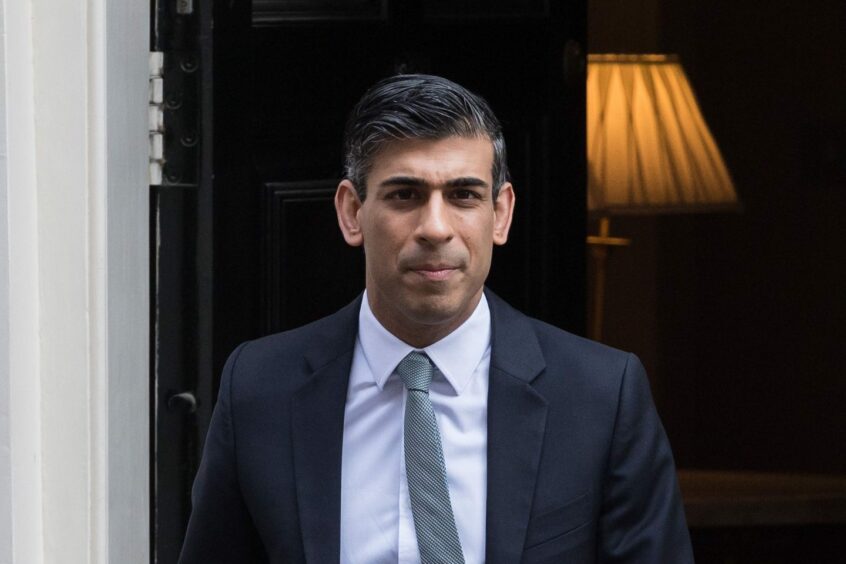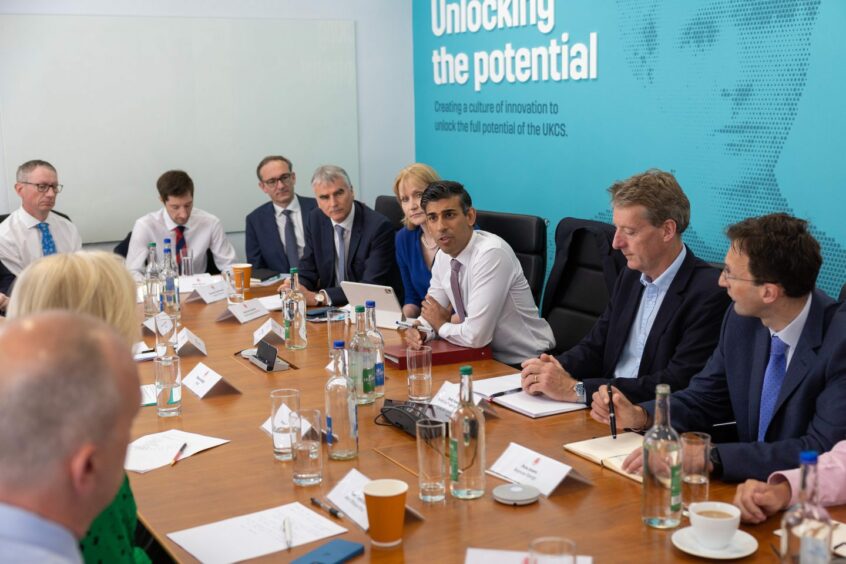
Rishi Sunak has been named leader of the Conservative Party following Liz Truss’ resignation last week, and will take the reins at a turbulent time in British politics.
Having lost his bid for the keys to Number 10 to Ms Truss earlier this year, Mr Sunak had to wait a mere 48 days before eventually claiming victory.
He inherits perhaps even greater challenges facing the economy and the energy sector than when he campaigned for the party leadership, as the government rushes through support for consumers and businesses, while proposing further market interventions and taxes on energy generators.
Nevertheless, the soon-to-be prime minister is no stranger to balancing the two, having served as Chancellor during Boris Johnson’s energy-heavy premiership.
We take look back at that record here.
Windfall Tax
As Chancellor, Mr Sunak presided over the Energy Profits Levy – also referred to as the windfall tax – during his time in Mr Johnson’s government.
Aiming to raise around £5 billion in revenue, the controversial measures increased the headline rate of tax on oil and gas producers from 40% to 65%. Yet it also included a near-doubling of the investment allowance to 80% which, on top of other measures, means firms can get 91 pence back per £1 spent for a total relief rate of 91.25%.
The legislation will “fall away” if oil goes below $70 per barrel, or at the end of 2025 under a sunset clause.
It is worth noting that Mr Sunak had publicly opposed the measure during his time as Chancellor, fearing that it would discourage investment in the UK North Sea.
However a party-wide U-turn on the policy resulted in the measures being enacted, hours after the Sue Gray report exposed the scale of partying at Number 10 during Covid-19 lockdowns.
Notably, during the leadership campaign, Mr Sunak sought to differentiate himself from Ms Truss, who ruled out further windfall taxes.
Instead he suggested further taxes on energy firms and electricity generators may be necessary to fund further support for household energy bills – or as a last resort, an increase borrowing.
It is a route the Truss administration appears to have pursued anyway.
Reinstate the Department for Energy
In addition to bringing in the windfall tax during his time as chancellor, Sunak made promises to reinstate a separate Department for Energy, which was abolished in 2016, if he won the leadership race.
He told The Telegraph that re-establishing the department would help make the UK “energy independent”.
That included “an ambitious new plan” to boost energy security , by investing in new technologies including a massive expansion of offshore wind.
However, he also pledged a rollback of Johnson-era commitments to end an onshore wind ban, and a reversal of proposals which would enable local communities to feel the benefits of local wind projects in the form of reduced energy bills.
Mr Sunak also suggested he would establish an Energy Security Committee ahead of the coming winter to deal with the supply crunch and market reforms to cut bills.
Energy price cap
While in the race for Tory leadership against Liz Truss, Sunak said that he would rule out implementing an energy price cap, instead opting to target support at the poorest households and pensioners.
His premiership now arrives a week after current chancellor Jeremy Hunt announced a Treasury-led review into how the government should support the public with their energy bills after the price cap is scrapped in April.
Hunt explained it would “not be responsible to continue exposing public finances to unlimited volatility in international gas prices.”
North Sea Transition Deal
During his time as Chancellor, the UK government also signed off on the £16 billion North Sea transition deal.
This incentivised a transition to low-carbon energy production in the North Sea.
The deal, which came about in March 2021, protected thousands of Scottish oil jobs in exchange for new commitments to slash emissions from offshore activity.
Quizzed during hustings events on the wider energy transition and low-carbon jobs, Mr Sunak refused to say whether he would fund a carbon capture project in Peterhead – Acorn – which had been passed over for the first pot of central funding from Westminster.
However, he claimed credit for the £1 billion scheme to build out similar CCUS schemes across the UK as a whole.
Speaking late on Monday, he paid tribute to the efforts of Ms Truss, and said he would now work day in day out to “deliver for the British people”.
He said the UK faced “profound” economic challenges, and called for stability and unity to overcome them.
Recommended for you

 © HM Treasury
© HM Treasury